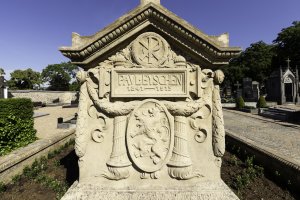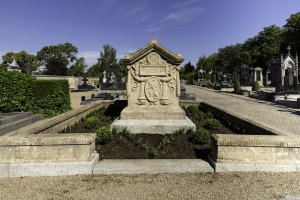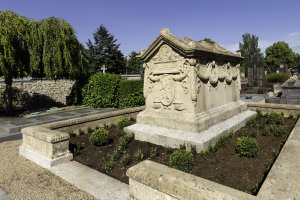Description
Minister of State Paul Eyschen was born in Diekirch in 1841. His father was Charles-Gérard Eyschen, president of the district court. Paul Eyschen went to secondary school at the Athénée de Luxembourg. He went on to study law in Paris, Bonn and Berlin. As he had a keen interest in politics, he managed to get himself elected in 1866, when he was just 25 years old! During the Franco-Prussian War, Paul Eyschen was a member of the Luxembourgish rescue parties, which went to the Sedan and Metz battlefields to rescue injured soldiers.

From 1875 to 1888, Eyschen served as chargé d'affaires to the German Government. In 1876, Paul Eyschen joined Félix de Blochhausen's Ministry as director-general of Justice and Public Works. In this position, he played a direct role in leading the dismantling of the fortress and the urban development of the city. From 1888 until his death in 1915, Paul Eyschen stewarded the country in his capacity as prime minister. At the Hague Conventions on disarmament in 1899 and 1907, Eyschen pleaded the cause of neutral countries.
Over the course of his career, Luxembourg was shaped by the industrial and social revolution that transformed Europe. He knew that Luxembourg would not be able to move forward without the systematic promotion of education. Following the introduction of compulsory schooling in 1881, and the creation of the agricultural school in 1883, he continued to advocate for specialised schools. Believing that men and women are equal, he invited the Sisters of Christian Doctrine to Luxembourg City to open a home economics and agricultural school in 1891. This was followed by the creation of the École d'Industrie et du Commerce in 1892 and the École d’'rtisans de l'État in 1896. The curriculum taught at the Athénée prepared students for university study. In 1911, the Lycée de Jeunes Filles was established as a public school. The duration of primary schooling was extended to seven years and was made free. The Education Law of 1912 (loi scolaire de 1912) eliminated the certificates of morality issued by priests to primary school teachers and exempted them from teaching religious instruction classes.

















